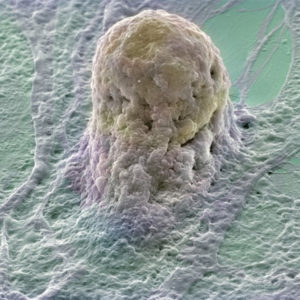Derivation and Culture of Human Induced Pluripotent Stem Cells (hiPSCs) (Virtual)
14–17 December 2020
Virtual course
Virtual training in best practices for working with human induced pluripotent stem cells (hiPSCs)
Summary
Please note: Due to the ongoing situation with Covid-19, this course will be delivered in a virtual format.
This popular course was stablished in 2015 in collaboration with the Wellcome Sanger Institute Cellular Generation and Phenotyping (CGaP) core facility and the UK Stem Cell Bank.
This year’s 4-day virtual course includes virtual, laboratory-based training sessions, lectures, and discussions covering current theory and best practices with regard to derivation, culture and characterisation of human induced pluripotent stem cells (hiPSCs).
Target Audience
The course is aimed at research scientists and clinicians/healthcare professionals engaged in relevant research involving hiPSCs.
Learning outcomes
After attending this course, participants should be able to:
- Assess and identify key advantages, disadvantages and critical elements of different approaches to somatic cell reprogramming
- Assess and identify undifferentiated, fully reprogrammed iPSCs compared to partially reprogrammed iPSC colonies
- Recognise critical aspects for successful preservation and storage
- Evaluate the recovery of iPSCs and identify viable cells
- Identify undifferentiated morphology of confluent iPSCs ready for passaging
- Identify and troubleshoot critical aspects in the passaging and maintenance of undifferentiated iPSCs
- Recognise the importance of core QC and potential consequences of failing to carry it out
- Evaluate different capabilities of each method of determining potential pluripotency
Programme
For our virtual courses, we use video conferencing (Zoom) and instant messaging (Slack) applications along with other online and virtual machine (VM) teaching resources to deliver the different elements of the course as interactively as possible.
The course will run approximately 10:00-17:00 (GMT) daily. Some teaching materials may be pre-recorded but participants must be available to attend live, interactive sessions online between these times.
The programme will include virtual practical laboratory sessions, lectures and discussions covering the following topics:
- Approaches for reprogramming of somatic cells (reprogramming methodologies – virus and episomal; somatic cell types – skin fibroblasts and PBMCs)
- Lectures on application of iPSC cells in disease modelling, genome editing and differentiation
- Cryopreservation and recovery
- Passaging
- Quality control (identity, karyology, mycoplasma, sterility, cell markers)
- Assessing pluripotency and differentiation of iPSC (theory)
Instructors and speakers
Lead instructors
Minal Patel Cellular Generation and Phenotyping, Wellcome Sanger Institute, UK
Adam Hunter Cellular Generation and Phenotyping, Wellcome Sanger Institute, UK
Glyn Stacey International Stem Cell Banking Initiative, UK
Guest speakers
Andrew Bassett Wellcome Sanger Institute, UK
Milena Bellin Leiden University Medical Center, The Netherlands
Rick Livesey University of Cambridge, UK
How to apply
Prerequisites
Applicants should be research scientists or clinicians/healthcare professionals engaged in relevant research involving hiPSCs.
Please note that due to the virtual format for this course, participants will require minimum computer specifications and internet access to fully benefit.
A guide to these requirements can be found here (PDF).
How to Apply
Please click the Apply button above to begin the online application process. Places are limited and will be awarded on merit. If you have any problems with the online application process, please contact us.
Please note: Applications must be supported by a recommendation from a scientific or clinical sponsor (e.g. supervisor, line manager or head of department). A request for a supporting statement will be sent to your nominated sponsor automatically during the application process. Applicants must ensure that their sponsor provides this supporting statement by the application deadline. Applications without a supporting statement cannot be considered.
Travel visas
Successful applicants will be provided with a support letter for their visa application, if required.
Please visit the following websites for further information on visiting the UK:
Cost
| Cost | ||
| *Course fee | £250 | Due to the ongoing situation with Covid-19, this course will be delivered in a virtual format. |
*The course fee is subsidised by Wellcome Genome Campus Advanced Courses and Scientific Conferences and applies to non-commercial applicants. Please contact us for the commercial fee.
Bursaries
Limited bursaries are available (up to 50% reduction on the course fee) and are awarded on merit. If you would like to apply for a bursary, please complete the bursary section of the online application form.
Where there are many bursary applications, the selection committee may issue smaller amounts.
Bursaries can be applied for as part of the course application form. Applicants will be notified of a bursary award along with their place on the course, usually within one month of the application deadline. The decision of the selection committee is final.
Please note that both the applicant and sponsor are required to provide a justification for the bursary as part of the application.
Additional funding opportunities
Visit our support page for additional financial support currently available.
Accommodation services phishing scam – please be vigilant. More information.
Testimonials
Feedback from the 2019 course:
“I had an amazing experience at the Wellcome Genome Campus. Learning from the experiences of the pioneers in the hiPSCs field broaden my horizon. Thank you all the instructors and organizers for your tremendous efforts and willingness to share your expertise.”
“I’ll be applying what I learned on the course in my dissertation studies.”
“Keep up the good work, it was an amazing course!”
“Thank you to the team, they were brilliant!”
“I thoroughly enjoyed the whole experience from the course content to networking opportunities. Everyone was so friendly and helpful which made it a really great week. Thank you.”
“If I could, I would take the course again, just for the fun.”

